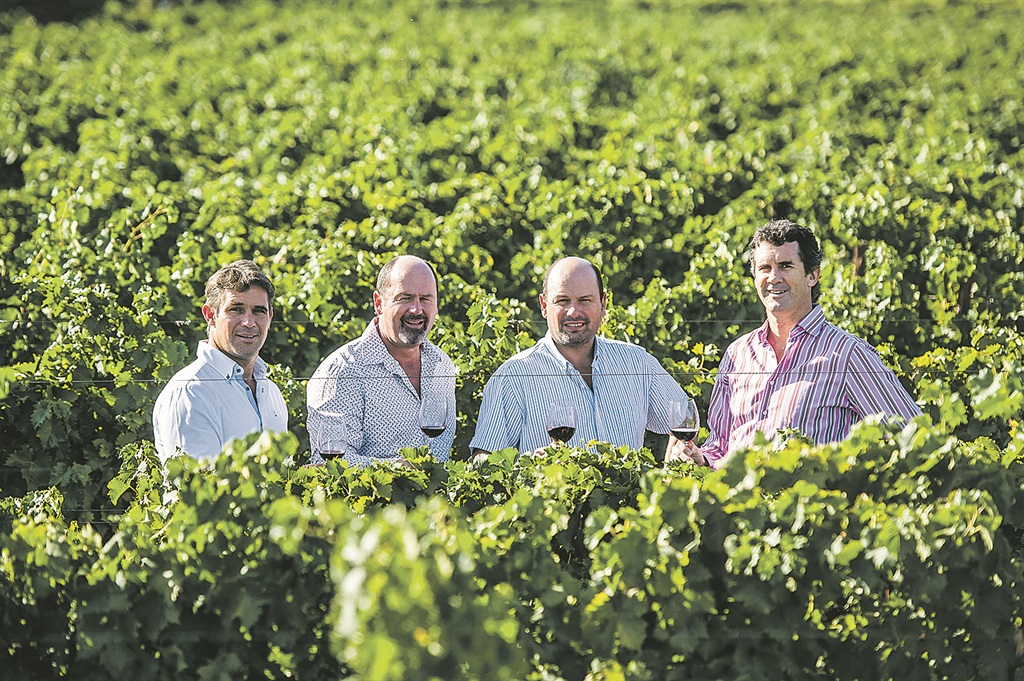
Some farmers have been left frustrated by the slow pace of the government.
And they have put the blame squarely on the rural development and land reform department for failing to come to the party on land expropriation.
They allege that three years after submitting a proposal to the department’s former minister Gugile Nkwinti in 2015, they still have not heard anything from the department.
“We do not know at whose door to knock for government support or funds to benefit our empowerment partners,” said Phillip Retief, managing director of Van Loveren Vineyards in the Western Cape.
Retief is among a group of established commercial farmers, who were willing to share part of their businesses with employees three years ago, but their proposal was not implemented by the government.
City Press can reveal that a proposal was made to Nkwinti in 2015, relating to a partnership between the government and banks to have the majority share of 30 farms owned by communities.
Banking Association SA (Basa) managing director Cas Coovadia, Basa human settlements market conduct division general manager Pierre Venter, FNB chief executive officer Jacques Celliers, the late Agri Business Chamber (Agbiz) chairperson Schalk Pienaar and Agbiz chief executive John Purchase formed the delegation that made the proposal to Nkwinti.
Retief said they were busy with more than one empowerment project in agriculture and land reform when the proposal was made.
“Our main request in the business plan was obtaining subsidy finance for our empowerment partners who were mostly our employees.”
He said they had a project that required quite a lot of capital expenditure on planting and infrastructure.
“Unfortunately, we did not hear back on the matter and the project and development is taking place at a slower pace than anticipated.”
At the time, Retief said they were willing to contribute resources, mentorship, finance and funds for their percentage of the shareholding or equity investment.
Asked if he was still willing to participate, Retief said: “Off course we are willing; at this moment we just do not know at whose door to knock for such support or funds for our empowerment partners.”
Purchase confirmed he made the presentation to Nkwinti in Parliament in 2015.
“The proposal was adopted in principle, but never implemented, despite considerable efforts [meeting upon meeting] to get it implemented,” Purchase said.
Last week Basa made a submission to the constitutional review committee stating that if government had approved its proposal, 6.5% of land would have been redistributed by now.
Coovadia said they made the proposal to Nkwinti at the time when the department wanted to expropriate 50% of commercial land and put that money into some sort of fund to help workers on that land acquire the other 50%.
“We went to them and we said let’s explore this. Instead of expropriating half of that commercial farm, find another farm on arable land close by and make an offer to the commercial farmer to buy 49% of that land, which he would own and farm himself. We come to the party and you guys [the department] come to the party and fund 51% for the workers.”
In terms of the proposal, commercial farmers would transfer skills to back up the venture but would have had a minority share; the workers or community would get the majority and over a period of time they could buy the commercial farmer out.
“In that way it is a win-win situation. And those are the sorts of discussions we need to have. The minister liked it and said we must get together with his team ... but we haven’t got it off the ground. My frustration is that let’s not get into the detailed emotional debates, let’s just unblock some stuff that needs to be unblocked so we can see results immediately.”
Coovadia said in the past five to 10 years the financial sector – through the Financial Sector Charter Council – had put R2 billion into the schemes meant to assist black emerging farmers and models similar to the one that was proposed to Nkwinti.
Although City Press learnt that funding had not been directly made available to black emerging farmers, unaudited figures of the Big Four banks show that loans to commercial farmers had increased to R148 billion at the end of June from R133 billion in December 2017.
Coovadia said government had to realise that to have thriving emerging farmers and lending from banks, collateral had to be provided or the Reserve Bank would complain about undue risk brought into the system.
Venter said their proposal to Nkwinti was meant to ensure meaningful land redistribution.
“What it required was government to part-fund those projects to the extent they were bankable, commercially viable and sustainable projects. The established farmers would stand behind the project, put their assets and expertise at risk to make sure the venture actually succeeds.”
Department spokesperson Phuti Mabelebele said the proposal had not been brought to the attention of Minister Maite Nkoana-Mashabane, who assumed her duties in February.
However, Mabelebele said Nkoana-Mashabane had instructed that meetings be set up with Basa and Agbiz.
“An update will be provided on the engagements,” Mabelebele said.
Should the state and private sector help commercial farmers to fund emerging farmers?
SMS us on 35697 using the keyword FARM and tell us what you think. Please include your name and province. SMSes cost R1.50. By participating, you consent to receiving occasional marketing material
 |
| ||||||||||||
| |||||||||||||




 Publications
Publications
 Partners
Partners








